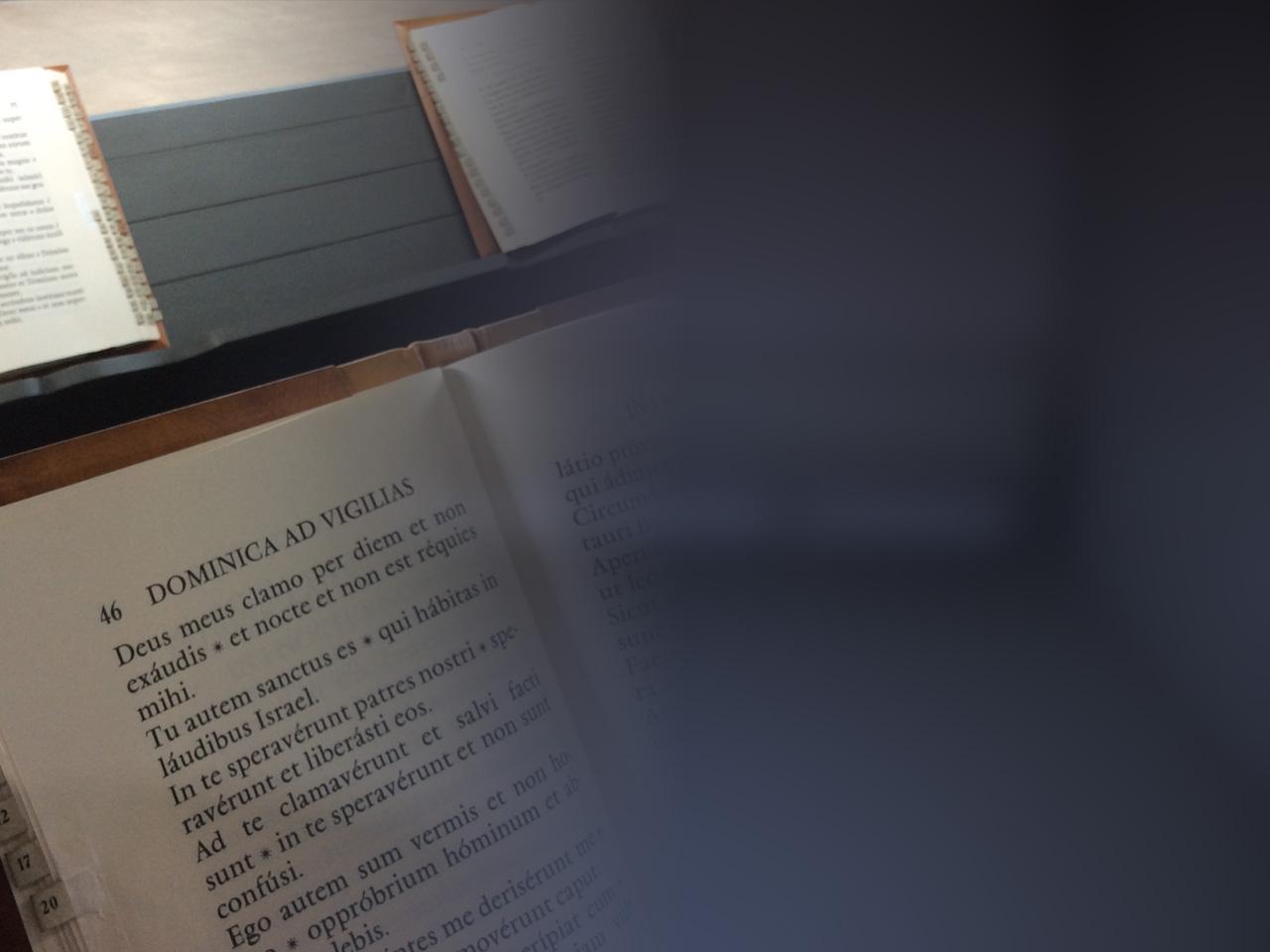
E
U
O
U
E
A
The Psalms in Western European Christian Contemplative Communities
In biblical worship, the psalms were chanted or recited. We do not know exactly how these texts sounded, though recent research has confirmed the similarity between Hebraic music and ancient forms of Christian chant. The psalms formed part of the developing liturgy of the Eastern and Western churches, along with Greek and Latin hymnody. Also in the Western church, the psalms found regular usage within the “canonical hours” or singing of the divine service in the monastic communities.
The Catholic heritage of chant, the so-called Gregorian chant due to the influence of the liturgical reforms by Pope Gregory the Great (540-604), includes the use of the psalms sung to standard “tones” or formulas according to conventional rules. This recitation of texts was performed by choirs made up of clergy or members of monastic orders who had developed the necessary skills.
The custom of psalmody, or antiphonal singing, is said to have been introduced into the Church of Antioch by St. Ignatius (ca. 35-115 AD). From Syria, this custom of the Synagogue would seem to have passed over to Palestine and Egypt, to Asia Minor, Constantinople, and the West. This largely monastic tradition had also a great influence on the Roman Latin liturgy. During office singing in the Roman Rite, all the Psalms were chanted at least once a week, some twice or even more. According to the Vulgate’s numeration, Psalms 1-108 are sung in Matins, and Psalms 109-150 are sung in the Vespers, excepted a few fixed for other hours. The great alphabetic praise of the Law, Psalm 118, is distributed between Prime, Terce, Sext, and None. The Benedictines, Franciscans, Carmelites, and Dominicans, who have their own rite, all chant the Psalter once a week, either following the Roman rite or its derivate the Benedictine liturgy.